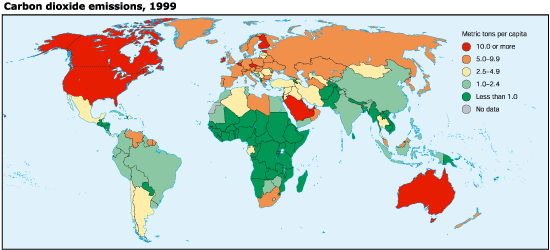An oil spill in the Gulf of Mexico is endangering wildlife and habitats along the gulf, and sources say that the oil has begun to reach coastal waters of Louisiana, home to nearly half of the country's wetlands. The first article points out that the way we have been cleaning up oil spills has remained largely the same since the 1960s. These methods include simply burning the oil off the surface of the water, a direct source of pollution.
The second article listed below makes an interesting point regarding the primarily Republican campaign to "drill baby, drill," in the article circle waters surrounding Alaska.
Congressman Jim Moran had this to say about the potential for disaster:
"If the drilling industry is incapable of capping a blowout in temperate waters in a region with more than 80 years of offshore experience in the close proximity of equipment, manpower and technical expertise, I have grave doubts about the industry's response capabilities in the frigid Arctic waters off Alaska's coast,"
What do you see as being a potential solution? Personally, I think that disasters like this happen infrequently, and that offshore drilling in Alaska is a feasible and profitable option for the United States. However, I also see the importance of preserving some of the last unscathed habitats we have in the United States. Can more be done regarding prevention for these oil spills?
http://www.nytimes.com/gwire/2010/04/30/30greenwire-oil-spill-containment-cleanup-technology-has-f-95687.html
http://www.nytimes.com/gwire/2010/04/30/30greenwire-oil-spill-silences-once-raucous-drill-baby-dri-28151.html

This latest indecent provides insight into some of the potential problems of offshore drilling, in many ways this provides us with good information on what precautions might need to be taken in the future construction of oil platforms specifically platforms that are designed for operation in the harsh environment of the North Pacific.
ReplyDeleteI read they recently set fire to the spill as a sort of last attempt to stop it from reaching the wetlands, it will be interesting to see if this technique will work or devastate the wetlands even more.
ReplyDeleteEven though these accidents might happen infrequently, the impact they have devastates wildlife and causes pollution that is extremely detrimental to the environment. The cost of cleaning up this Gulf of Mexico oil spill is estimated to be over 3 billion for BP; so yes, I absolutely think more can be invested into prevention efforts. It may cost more to upgrade the technology, but monetary value cannot be placed on the wildlife lost when oil spills occur.
ReplyDeleteIt is amazing that we have come so far with technology and yet the only way we know to fix an oil spill is to burn the oil off the water. Oil spill may be infrequent but when they happen the effects on ecosystems are extremely damaging.
ReplyDeleteThese accidents are the main reason we cannot surround our coastlines with oil platforms. The environmental degredation and the amount of pollution and species loss to a spill would be disasterous for all or any coastal economy. It is impossible to completely eliminate human or technological error so these tragedies will not become a thing of the past.
ReplyDeleteI agree that offshore drilling is a practical idea and that it can be done safely however the current methods of drilling to not have enough safety mechanisms to ensure the safety of the environment. In the case of the oil spill in the gulf the main line of oil to the tanker ruptured and then detached. There is a emergency valve near the source of the oil but for some reason they cannot get it turned off. If drilling companies were able to make a few simple changes like adding more emergency shutoff valves and putting a safety pipe around the drilling pipe they could prevent huge spills that have a large effect on the environment.
ReplyDelete